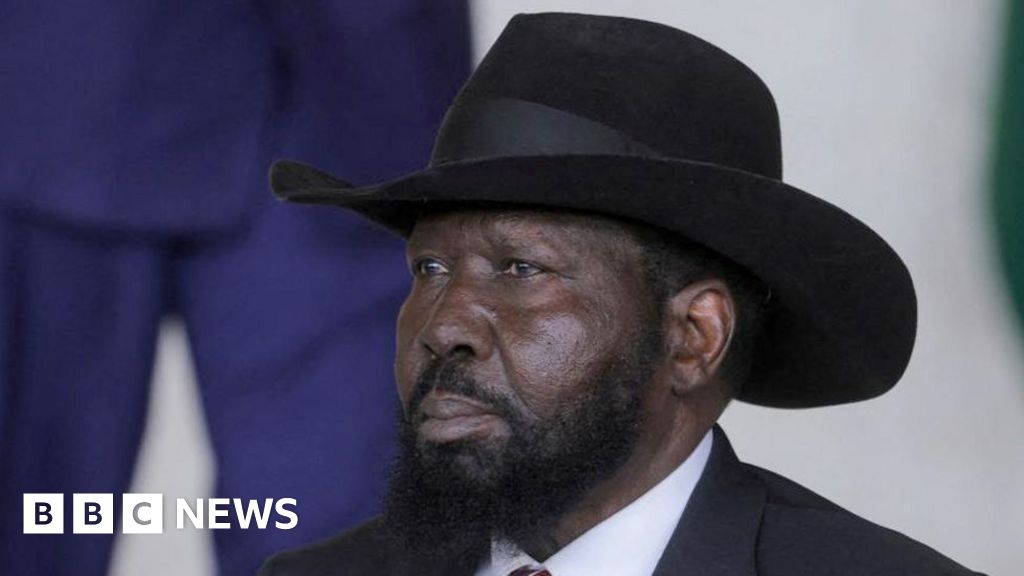In a significant development in international diplomacy, South Sudan has agreed to accept a man deported from the United States, marking an attempt to de-escalate a growing diplomatic dispute. This decision comes after an unexpected and tense stand-off between the two nations, which started when the U.S. deported a South Sudanese man and South Sudan initially refused to accept him. The dispute highlights the complexities of global repatriation agreements and the challenges faced by countries when it comes to verifying identity and citizenship, while also revealing deeper diplomatic dynamics between the U.S. and South Sudan.
The Deportation Dispute and Visa Ban
The controversy began when the United States deported an individual, identified as Nimeiri Garang, back to his home country of South Sudan. The deportation was a routine part of the U.S. immigration process for those living in the U.S. without legal status. However, things quickly turned complicated when South Sudan’s government refused to accept Garang upon his arrival. South Sudan claimed that Garang was not a South Sudanese citizen, but rather a Congolese national named Makula Kintu.
This discrepancy regarding Garang’s citizenship status led to a diplomatic standoff between South Sudan and the U.S. South Sudan’s authorities maintained that the man deported by the U.S. was not a South Sudanese citizen and should not have been sent back to the country. In response, the United States accused South Sudan of not fulfilling its obligations under repatriation agreements, which are designed to ensure that countries accept deported nationals who are legally bound to return.

The fallout from South Sudan’s refusal was swift. The U.S. government, frustrated by the lack of cooperation, imposed a blanket visa ban on South Sudanese nationals. This drastic move, which halted the issuance of new visas and revoked existing ones, was seen as a direct consequence of South Sudan’s actions in blocking the return of the deportee. U.S. Secretary of State Marco Rubio emphasized that this action was in response to South Sudan’s failure to accept the repatriation of a national in a timely and responsible manner, and warned that such conduct would not be tolerated.
South Sudan’s Position and the Reversal
At first, South Sudan stood firm in its refusal to accept the deportee. The South Sudanese government insisted that the individual in question, Garang, was not a South Sudanese citizen. Instead, they argued that he was a Congolese national who had either falsely claimed South Sudanese citizenship or had been incorrectly identified as a South Sudanese national. South Sudan’s Ministry of Foreign Affairs and International Cooperation expressed regret over the U.S. visa restrictions, calling them an overreaction to what they considered a misunderstanding about the individual’s citizenship.

However, in a surprising turn of events, South Sudan agreed to accept the deportee back into the country, albeit under different circumstances. The government, in an effort to improve strained relations with the U.S., decided to accept the individual identified as Makula Kintu in a bid to resolve the issue amicably. This decision was communicated through a statement by the South Sudanese Ministry of Foreign Affairs, which indicated that the move was made to show South Sudan’s willingness to engage with the international community and maintain positive relations with key partners like the U.S.
The South Sudanese government emphasized that its decision was made in the spirit of fostering cooperation with the United States, and that it was willing to take the necessary steps to ensure that the deportation issue would not become a prolonged diplomatic problem. The reversal of its position signified South Sudan’s recognition of the importance of maintaining a stable relationship with its international allies, particularly the U.S., and mitigating the effects of the diplomatic fallout.
The U.S. Response and Ongoing Visa Ban
Following South Sudan’s reversal, the United States acknowledged the South Sudanese government’s decision to accept the deportee and expressed appreciation for the steps taken to resolve the issue. However, despite this diplomatic breakthrough, the U.S. maintained its blanket visa ban on South Sudanese nationals, emphasizing that the restrictions would not be lifted until the full scope of the situation was clarified and normal diplomatic channels were re-established. U.S. officials indicated that the visa restrictions were a temporary measure designed to express dissatisfaction with the original refusal to accept the deportee, while also sending a clear message about the importance of adhering to international repatriation agreements.
While the South Sudanese government’s decision to accept the deportee was seen as a positive step in defusing tensions, the visa ban continues to cast a shadow over the relationship between the two countries. The U.S. has expressed hope that this situation can be used as a learning opportunity for both parties, urging South Sudan to engage in more transparent communication when it comes to citizenship and repatriation matters. The visa ban, while disruptive, is seen as a means for the U.S. to assert its expectations for cooperation in diplomatic relations.
The Broader Context: Sudan, South Sudan, and International Relations
The diplomatic clash over the deportation is part of a larger pattern of South Sudan’s complex international relations, particularly with the U.S. and other Western countries. South Sudan, the youngest nation in the world, emerged from decades of civil war and achieved independence in 2011. Since then, it has struggled with internal conflict, human rights abuses, and economic instability. The country has relied heavily on international aid, including support from the United States and other Western nations, to help it navigate its developmental challenges and rebuild after years of violence.
The U.S. has been a significant contributor to South Sudan’s humanitarian relief efforts, providing aid for food security, health care, and infrastructure development. The U.S. government has also played an active role in peacebuilding efforts, attempting to mediate between South Sudan’s warring factions and promote reconciliation. As a result, the U.S. has become a crucial partner for South Sudan in its efforts to stabilize the country and build a more secure future.
The diplomatic row over the deportation, however, underscores the vulnerability of South Sudan’s relationships with foreign partners. The country’s internal challenges, coupled with external pressures from the international community, make it imperative for South Sudan to manage its diplomatic ties carefully. Misunderstandings and disputes like the one over Garang’s deportation can jeopardize the progress the country has made in building relationships with international partners, such as the U.S., and hinder its efforts to secure further aid and investment.
Conclusion: Diplomatic Tensions and the Path Forward
The saga surrounding the deportation of Nimeiri Garang highlights the challenges of international diplomacy and the delicate balance nations must maintain when managing repatriation agreements. South Sudan’s decision to accept the deportee is a step in the right direction for both countries, offering a potential pathway to de-escalate tensions and restore diplomatic normalcy. However, the continued visa ban and the underlying issues of citizenship verification and repatriation remain points of contention that both nations will need to address moving forward.
For South Sudan, this diplomatic incident serves as a reminder of the complexities of international relations and the importance of upholding commitments to international agreements. The U.S. will likely continue to monitor South Sudan’s adherence to repatriation protocols closely, while also weighing the impact of the visa ban on future relations.
Do follow Uae stories for more Updates
AD Ports Group Q1 Revenue Hits Dhs4.6 Billion in Strong Start to 2025












